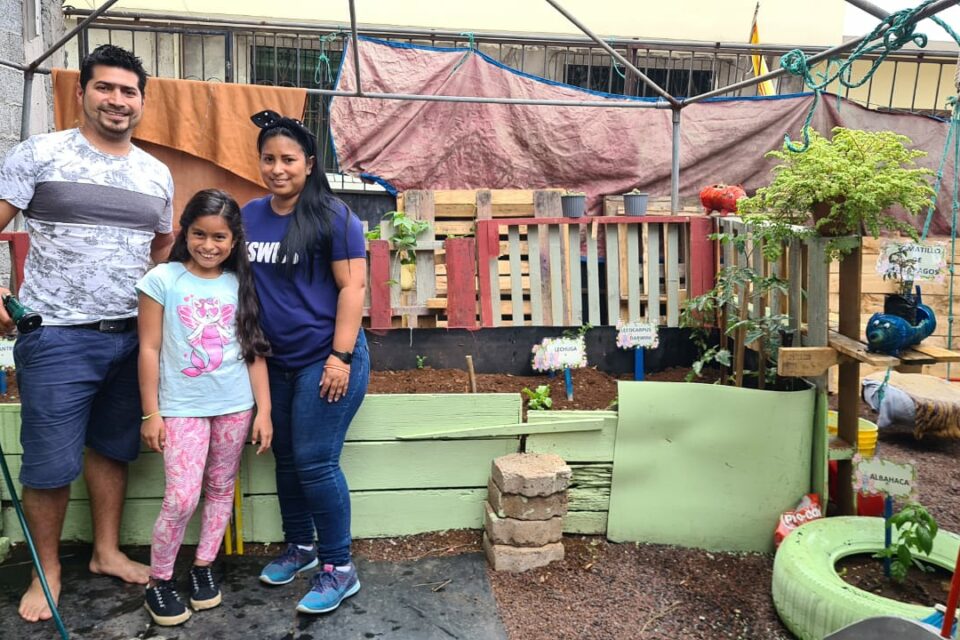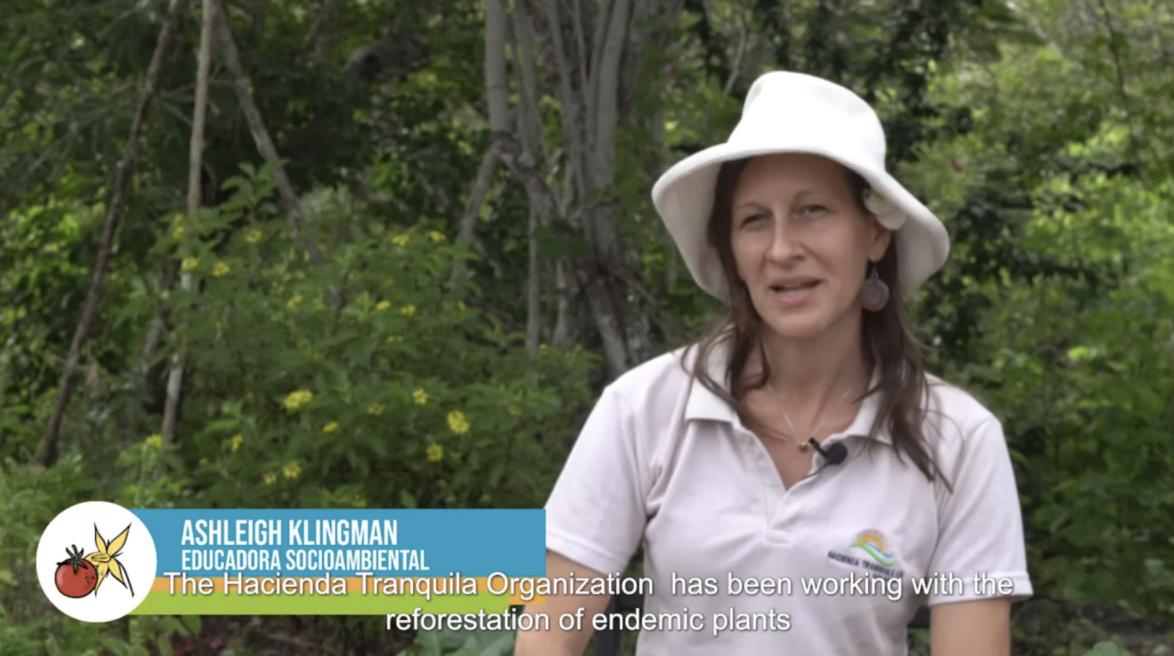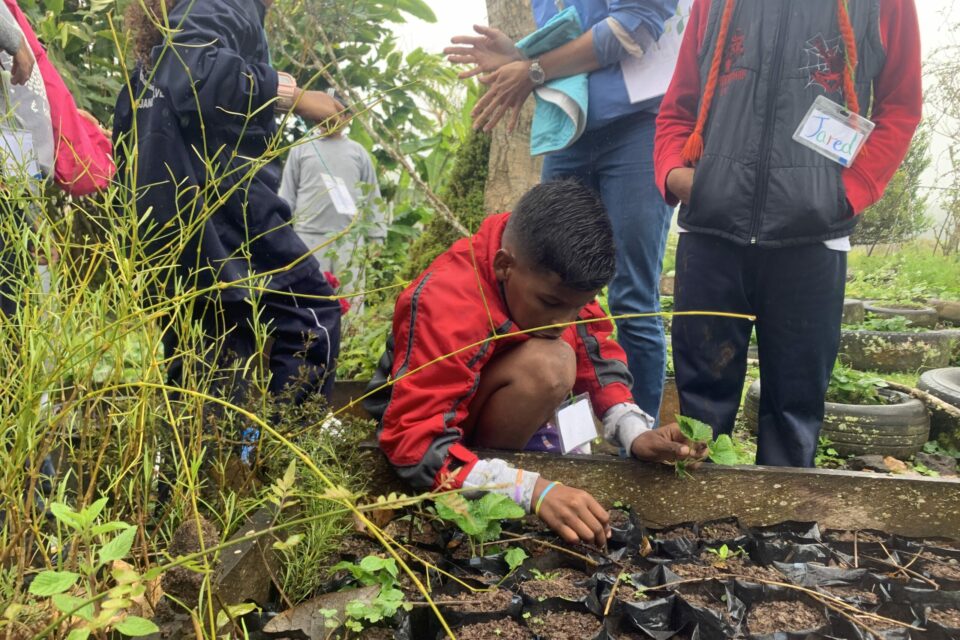

Urban Family Gardening: Positivity amidst the pandemic
Despite facing dozens of outdoor education group cancellations for 2020, the Hacienda Tranquila team, led by project coordinator Ashleigh Klingman, optimised resources and know-how to find a silver lining in the COVID-19 pandemic.
With support from GCT through our Connecting with Nature programme, Ashleigh and a team of local elementary school teachers co-designed an education project that motivates families to produce organic food together, as well as connect to their island identity by adopting endangered, endemic plants for their garden
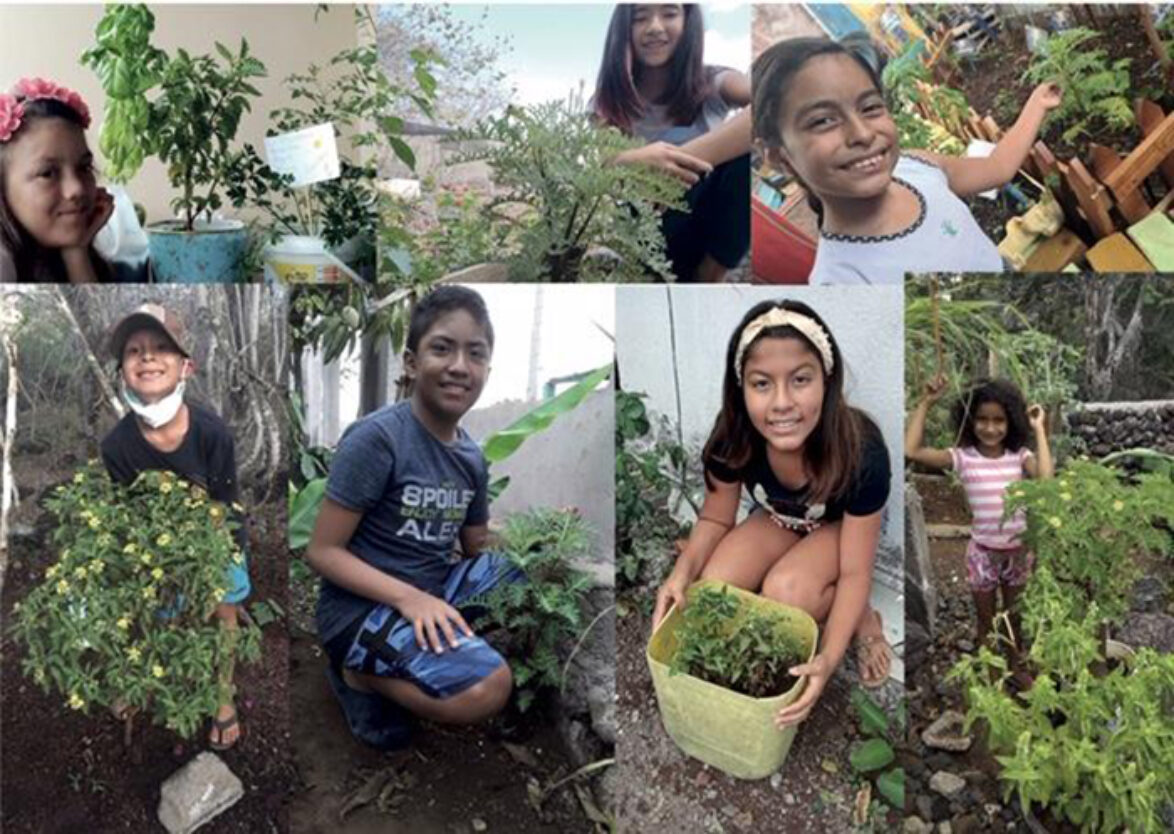
Since starting in July 2020, the team alongside seven local teachers have now reached 150 families on San Cristobal. By working through the online school system, the team are empowering children to take a lead role in gardening, as well as promoting a peaceful place for respite and family bonding. The project also aims to promote nutrition and encourages the participants to cook using their home-grown produce. A motivating 94% of the participants who filled in the post-project survey said that their families used their fresh produce to cook and 30 families shared videos of their children cooking healthy meals with vegetables from their family gardens.
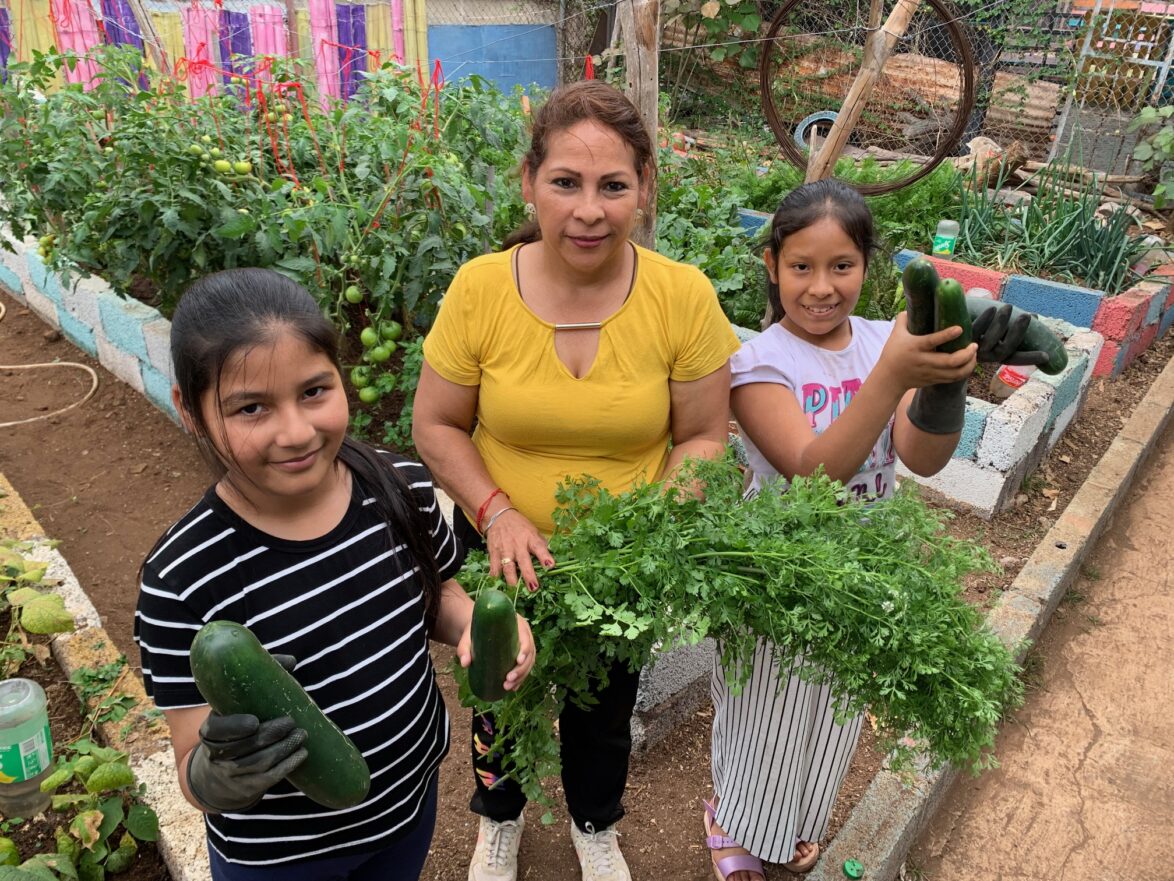
Urban Family Gardening
The Urban Family Gardening project supports local families in Galapagos to grow their own food, promoting environmental sustainability, wellbeing and food security.
Key impacts of the Urban Family Gardening Project
Of the families participating:
- Approximately 50% had never gardened before – now the majority class themselves as successful gardeners.
- Only 10% could name Galapagos carpenter bee, which is the only endemic bee in Galapagos, before starting, but after weekly activities and fun cartoon drawings, more families learned about this unique insect.
- Before taking part in the project, only 30% of families had gardened together. However, throughout the first nine months of the project, all children cared for at least one plant consistently.
- Prior to receiving the plants, 30% of participants emphasised their commitment to the project, 55% pledged to do their best and 10% were doubtful of any success. The majority of participants are now excitedly expanding their gardens.
- Most importantly, 89% of those who took part in the post-project survey demonstrated an increased commitment to conservation. Although many families were enthusiastic about gardening at the beginning of the project, even more were keen about adopting an endemic plant of San Cristobal for their garden to contribute to conservation efforts at the end of the school year.
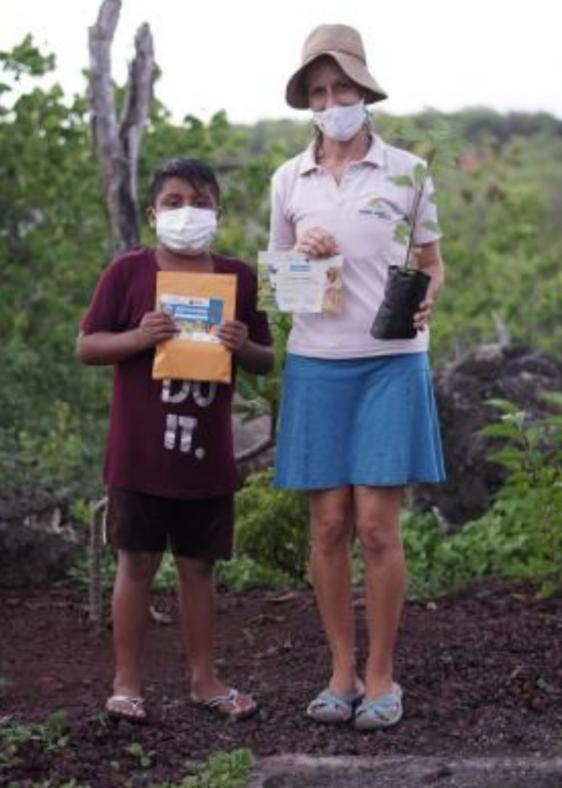
One especially positive story came from Johao Masaquiza, an 11-year-old only child who comes from a fractured family. Although he had been swimming all afternoon with friends, he arrived wet last minute to pick up his adopted plant and project certificate, asking anxiously if he was still in time. He explained that when he was younger, he used to carelessly pull leaves off plants as he walked by them.
His father scolded him, but he paid little attention. This year through the project, he began to see the plants differently. He began to befriend them and to help them grow. He became so intrigued by them and responsive to positive comments by his aunt at home, that he donated some of his plants to his extended family. He happily adopted his Darwin’s Lecocarpus yellow-flowering plant for his garden to “keep me company when I have to stay home because of the pandemic.”
Wendy Macias, a single mother of two boys said, “This project has been an excellent opportunity for me to connect more with my children and learn about the special plants on our island about which we knew nothing before.”
Initially, the project team only planned to help families garden during the first year of the pandemic. However, all seven teachers and 82% of the families have requested that the project continue and expand its benefits to reach more families. Ashleigh and 20 local elementary teachers have integrated the project into the positive contextualized place-based education curriculum as an opportunity to deepen educational outcomes for over 500 families in the Islands.
Watch the video to find out more:
50 %
of participants in the project had never gardened before
How you can help
Ways to support our education and outreach work in Galapagos include becoming a member, attending an event, volunteering or buying a donation gift card from our shop.
Related articles

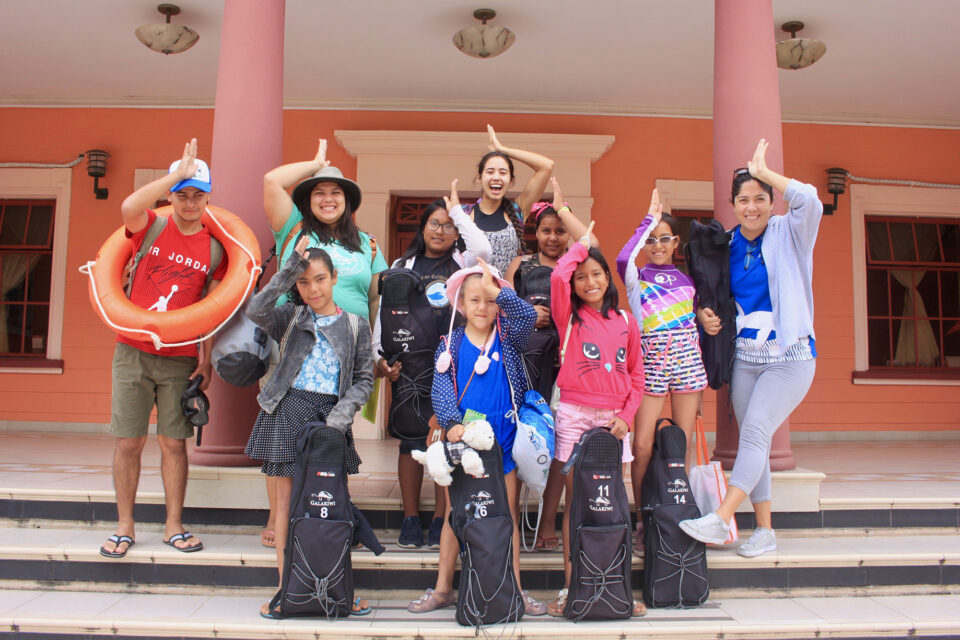
Connecting with Nature webinar 2021
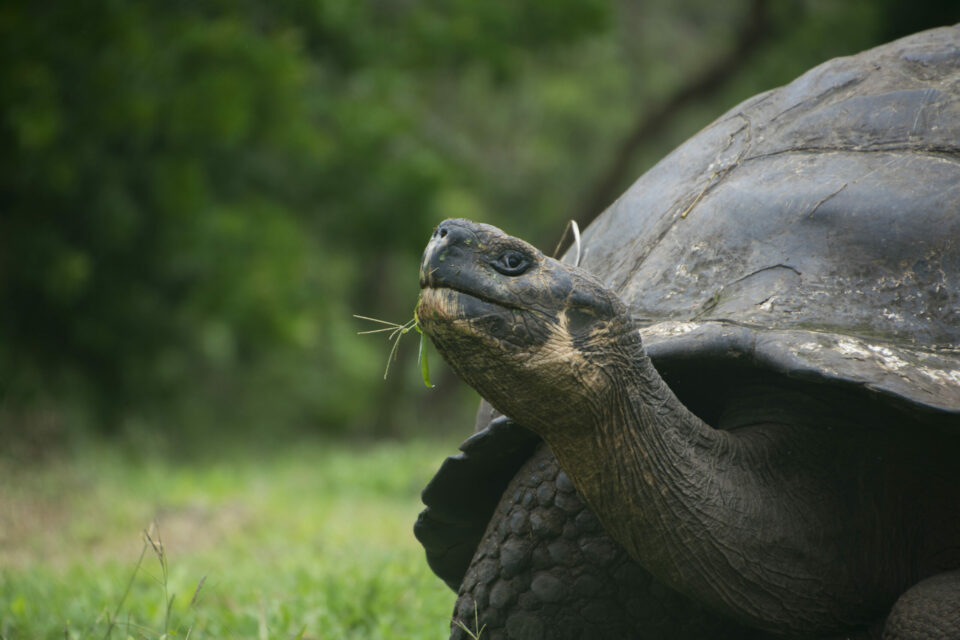
2020 Successes!
